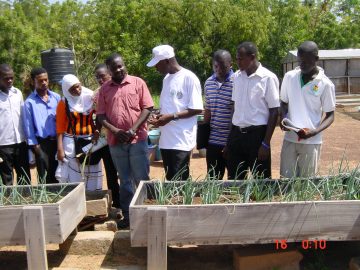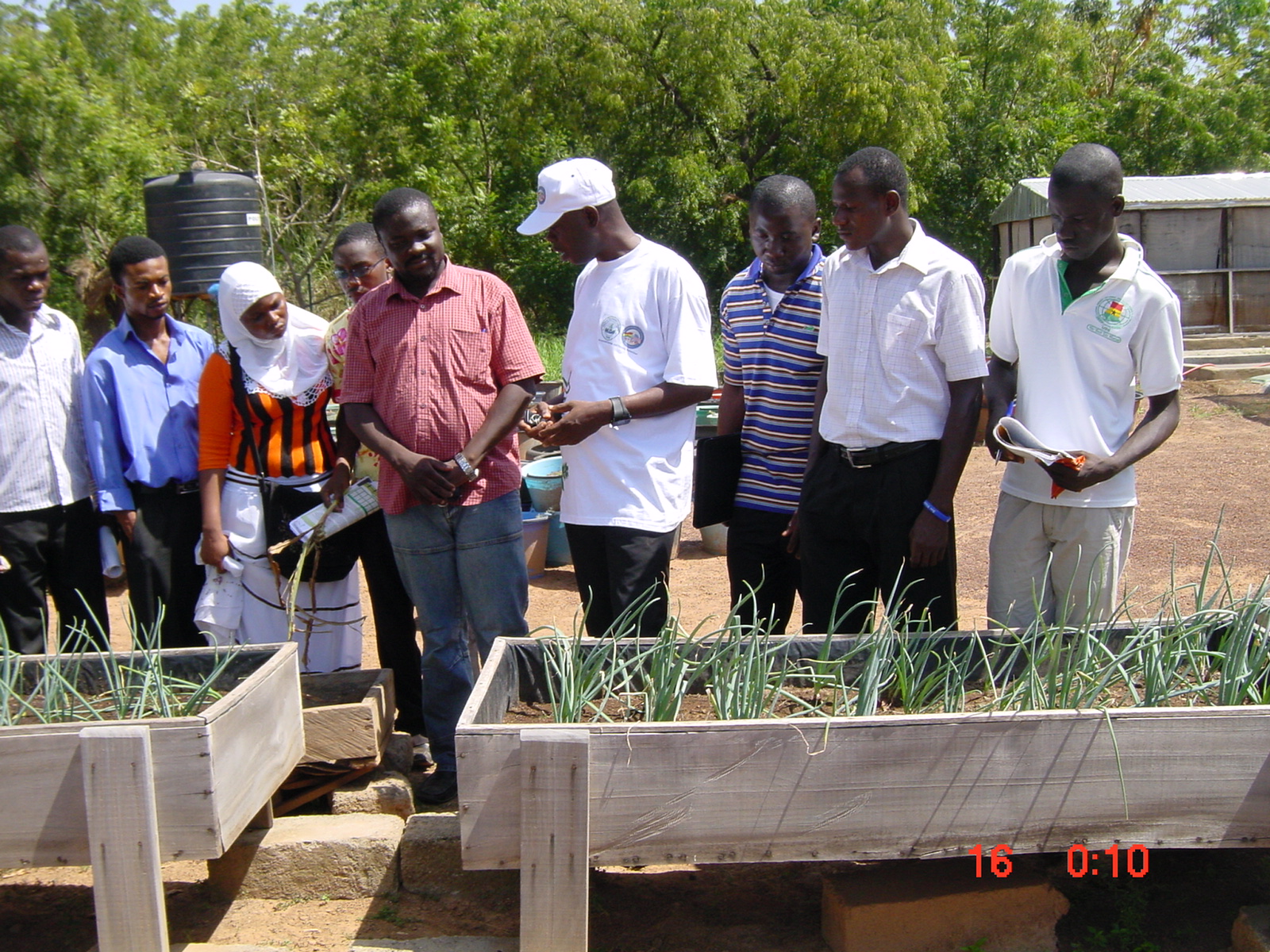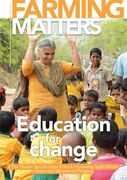Not long ago, access to higher education in northern Ghana was impossible: the country’s universities were all located in the southern part of the country. This changed in 1992 with the establishment of the University for Development Studies (UDS). Unlike the other universities with single, large campuses located in the biggest cities, UDS has four satellite campuses dispersed across four rural districts in the northern savannah zone. It specifically encourages all students to work together with, and learn from, farmers. Its different approach is helping it achieve the objective expressed in its motto: “knowledge for development”.

Both the location and mandate of the University for Development Studies reflect the intention to blend the academic world with that of rural communities. Recognising the difficulties in northern Ghana, the university’s founders aimed to establish an institution that could effectively contribute to solving development problems and, at the same time, enhance high school graduates’ access to higher education. A main objective was to bridge the socio-economic disparity between the northern and southern halves of the country.
Because of its development focus, the university gives preference to female students and students who come from deprived high schools and rural areas. There are students from farm households as well as many who are completely unaware of the situation in rural areas. A majority of the non-teaching staff are from the communities where the university campuses are located, and the academic staff, like the students, have different backgrounds. More than 60% of the academic staff (including myself) studied at UDS and were employed after completing a Bachelor’s degree and being supported by the university to obtain M.Sc. and Ph.D. degrees at other higher education institutions.
The TTFPP
An important tool for achieving UDS’s objectives is a unique model of education that emphasises both academic learning and an intensive community-based practical training programme. In this model, instead of the typical two semester system used in most universities, we follow a trimester system consisting of two 16-weeks periods of lectures and one 8-week practical training period – the Third Trimester Field Practical Practical Programme (TTFPP). This semester is specifically devoted to community work. During this time, students are sent to the field to undertake a thorough study of the community that receives them.
As part of the TTFPP, groups of about ten bachelor’s students of the same academic year group but from different faculties (Agriculture, Renewable Natural Resources, Education, Integrated Development Studies, Applied Science, and Medicine and Health Sciences) are sent to live and interact with selected farming communities during the farming season (which, in northern Ghana, runs from May to October). Like the regular semester sessions, the TTFPP is a compulsory academic programme, and undergraduate students cannot complete their studies without fully participating in it. The TTFPP gives students the opportunity to put classroom knowledge into practice, while at the same time learning about group dynamics and team work. Being exposed to different socio-cultural conditions, students learn how to live and work with different cultural groups, and also to appreciate different cultural values and practices.
This is an iterative process. In the first year, students develop the skills to work with the community members to collect and analyse socio-economic data and produce community profiles. In the second year, the students and their hosts build on the profiles created in the previous year to identify general development problems, focusing on the threats and challenges facing the communities. Then, in the third year, students work in smaller groups on a given problem area together with the community members, formulating specific, pragmatic intervention programmes and drawing up Community Action Plans (CAP) for addressing these problems (see box). To ensure their active participation, students are continuously monitored and assessed in all the phases of the programme.
The Community Action Plans
The CAPs prioritise the needs of a particular community, the actions and resources required to meet these needs, and identify a responsible person, group or institution for each step. Prepared by the students as part of their studies, these development programmes are then implemented by the district assemblies (the smallest unit of government in Ghana). Naturally, these CAPs differ from community to community: they may focus on health and sanitation, agriculture and food security, microenterprise development, conflict resolution, or roads and transport. In all cases, however, they are the result of the different perspectives of students from different disciplines. Working together helps students to appreciate community problems and opportunities in a holistic manner. It also helps them to broaden their perspective as they have the opportunity to interact and learn from each other. We have regularly seen how it also fosters a spirit of team work.
Starting with just 39 students from the Faculty of Agriculture in 1993, the TTFPP has to date engaged more than 20,000 young people, and its coverage area has extended from the northern part of Ghana to the rest of the country. In addition to second and third year students, more than 3,000 first year students from all faculties are participating in this year’s programme.
Most of them, especially those from big cities in the southern part of the country, find that staying in deprived communities (without potable water, electricity, health facilities or motorable roads) for eight weeks is a humbling experience that totally changes their perceptions and thinking. The students become role models to the youth of the communities, and in turn learn group dynamics and develop leadership skills. They also acquire the spirit of social work, learn to appreciate rural life and, most importantly, develop a high degree of commitment to rural work. Since some of these students are future policy makers, this experience is very important.
The programme’s evaluations have revealed that the TTFPP has promoted active and constructive interactions of both students and staff with the local communities. This in turn has helped them facilitate a socio-economic transformation process within these communities. It has fostered favourable attitudes in students towards working in deprived, rural communities. Thus a majority of high level employees in the government and in NGOs in Ghana’s rural areas are UDS graduates. The practical skills gained at UDS makes them the preferred choice in the Ghanaian job market, particularly in projects or programmes in rural areas. UDS graduates are popularly called “practical development agents” in Ghana. The TTFPP has gained popularity inside and outside Ghana, and students from Germany and the United States are now joining it. In keeping with the vision of the university, the integrated TTFPP will, despite funding constraints, continue to lead the efforts of generating “knowledge for development”.
Joseph Amikuzuno lectures at the UDS Department of Agricultural and Resource Economics,
Nyankpala Campus, Tamale, Ghana. E-mail: amikj26@yahoo.com


